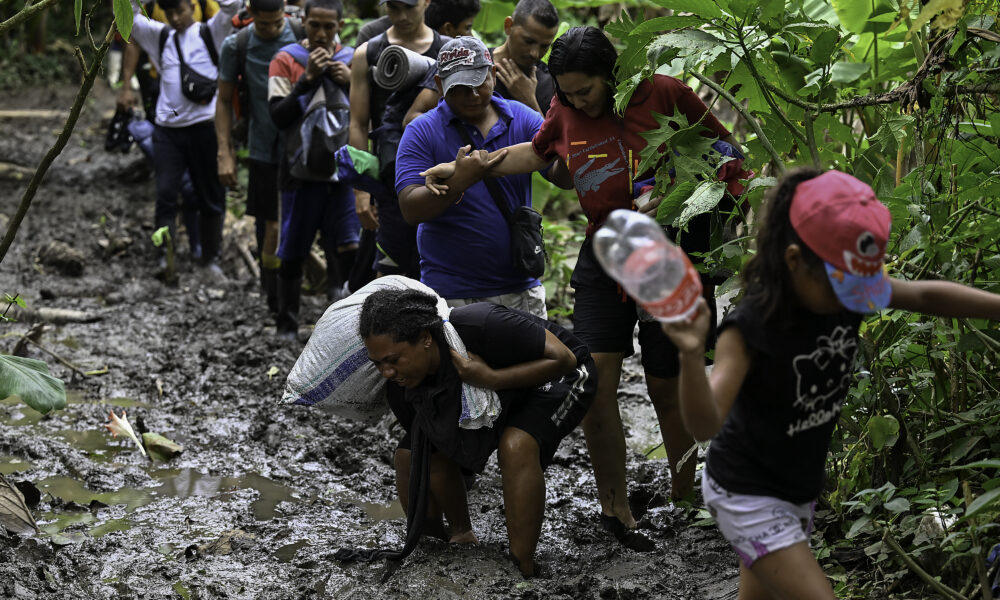International
Flood of forlorn Venezuelans brave jungle crossing in Panama
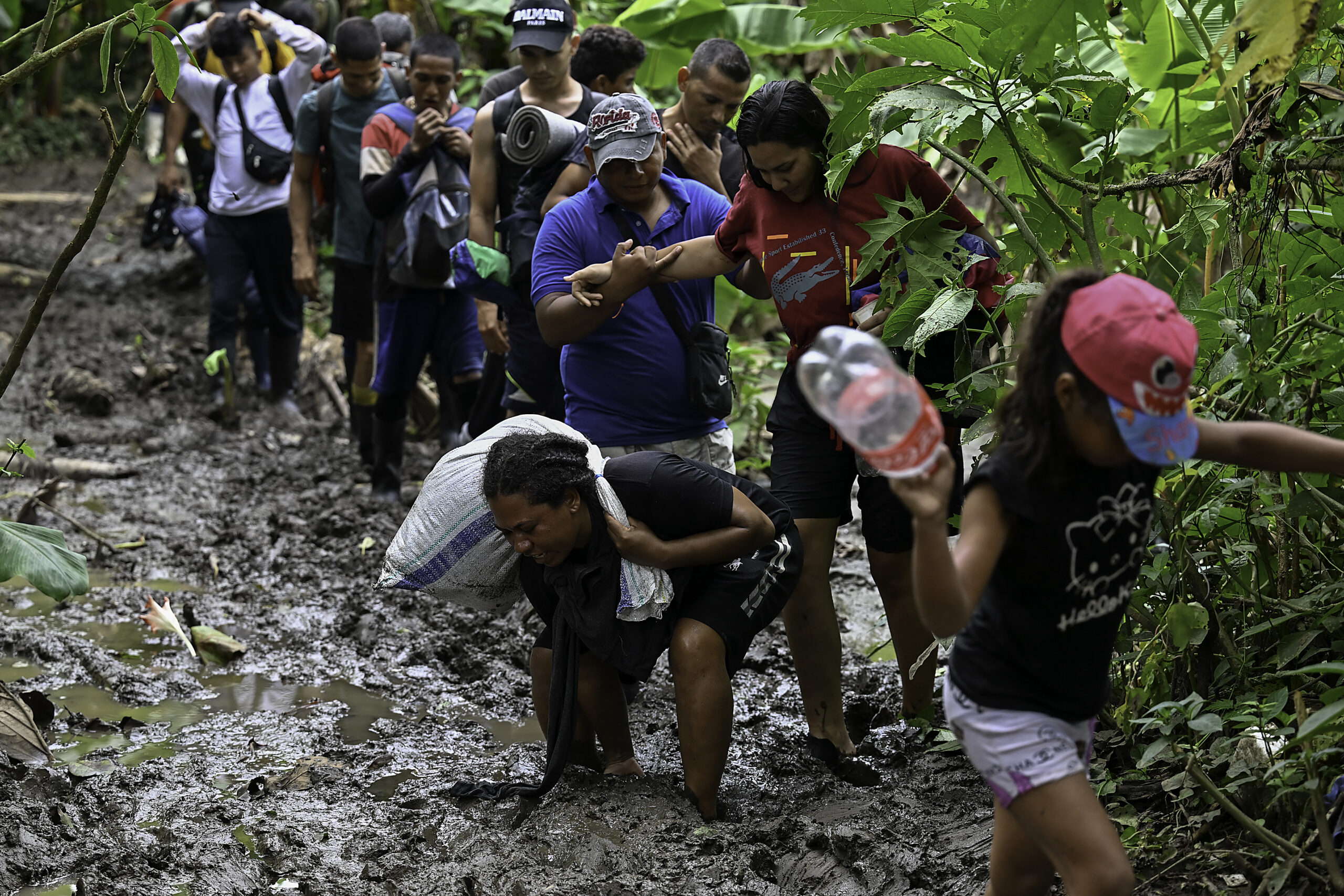
| By AFP | Juan José Rodriguez and Luis Acosta |
Wading through knee-deep mud, some limping, hundreds of Venezuelan migrants battle against fatigue with their eye on the prize: hope for a new life in the United States.
With sore feet, injuries and dented spirits several days into their ordeal — still far from halfway — they trudge in single file through the infamous Darien Jungle linking Colombia to Panama.
With a long way still ahead through Central America and Mexico, the group of men, women and children, some babies, already has many horrors to recount.
And it may all have been in vain.
Last week, the United States announced that Venezuelans arriving by land without travel documents will be returned to Mexico.
For Jesus Arias, 45, sometimes one has to “risk one’s life to have a future.”
“But honestly, I would not advise anyone to come through the jungle. It is very hard,” he told AFP as he and others arrived at an Indigenous settlement in Panama, Canaan Membrillo — one of several border control points in the 575,000-hectare (1,420,900-acre) jungle.
Arias arrived at Canaan Membrillo in a T-shirt and shorts, carried by other men in the group after injuring his knee.
‘We’re going anyway’
He undertook the journey knowing it would be tough because “there is no future in Venezuela. Every day it gets worse.”
He may have no choice but to go back to the crisis-hit country, which is wracked by violence, insecurity and a lack of essential services. The UN Refugee Agency says 6.8 million refugees and migrants have left Venezuela since 2014.
Under the US decree, only 24,000 Venezuelans who apply under a humanitarian program will be granted entry.
“We’re going anyway,” said Arias. “Even if we are stopped, at some point we will enter.”
The number of Venezuelans making the Darien crossing reached a record high in 2022 — some 133,000 between January and mid-October, according to authorities in Panama.
For the whole of last year, the figure was 2,800.
Venezuelan Nelida Pantoja, 46, saw “many dead, many mountains, many rivers that carried off many people… It was horrible,” she told AFP at Canaan Membrillo.
But like most of her fellow migrants, she vowed to “keep trying” until she gets into the United States.
Darwin Vidal, 33, said he was struggling to garner the strength for what lay ahead: battling not only rough terrain but also being at the mercy of poisonous snakes and other wild animals, as well as criminal groups.
“I got lost for three days in the jungle with my family. With my children, we were going too slowly. We couldn’t keep up with the group, we fell behind, and got lost” for a scary while, he said.
Rusbelis Serrano, 18, said she thought the worst was over.
“My mom, my dad, my brothers are waiting for me” in the United States, Serrano told AFP.
“I don’t have much left. I have to keep trying.”
The authorities in Panama say at least 100 people have died crossing the Darien since 2018, about half of them in 2021 — the deadliest year so far.
International
Death toll from southern Spain train crash rises to 40
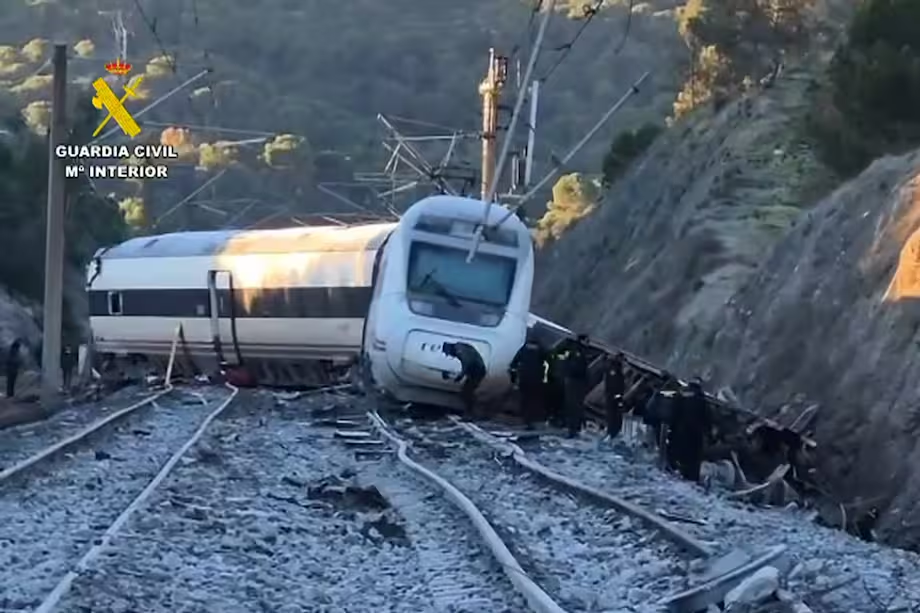
The death toll from the train accident that occurred on Sunday in southern Spain has risen to 40, according to investigative sources cited by EFE on Monday afternoon.
Since early Monday, search operations have focused on the damaged carriages of a Renfe train bound for Huelva, which collided with the last derailed cars of an Iryo train traveling from Málaga to Madrid after it left the tracks.
The crash has also left more than 150 people injured. Of these, 41 remain hospitalized, including 12 in intensive care units at hospitals across the Andalusia region.
More than 220 Civil Guard officers are working at the site, searching the railway line and surrounding areas for key evidence to help identify victims and determine the causes of the accident.
The tragedy has revived memories of the deadliest railway disasters in Europe in recent decades. In Spain, the most severe occurred on July 24, 2013, when an Alvia train derailed near Santiago de Compostela, killing 80 people and injuring 130 others.
At the European level, the worst rail disaster took place on June 3, 1998, in Eschede, northern Germany, when a high-speed train struck a bridge pillar at 200 kilometers per hour, resulting in 98 deaths and 120 injuries.
International
Spain’s Prime Minister pledges transparency after train crash kills at least 39
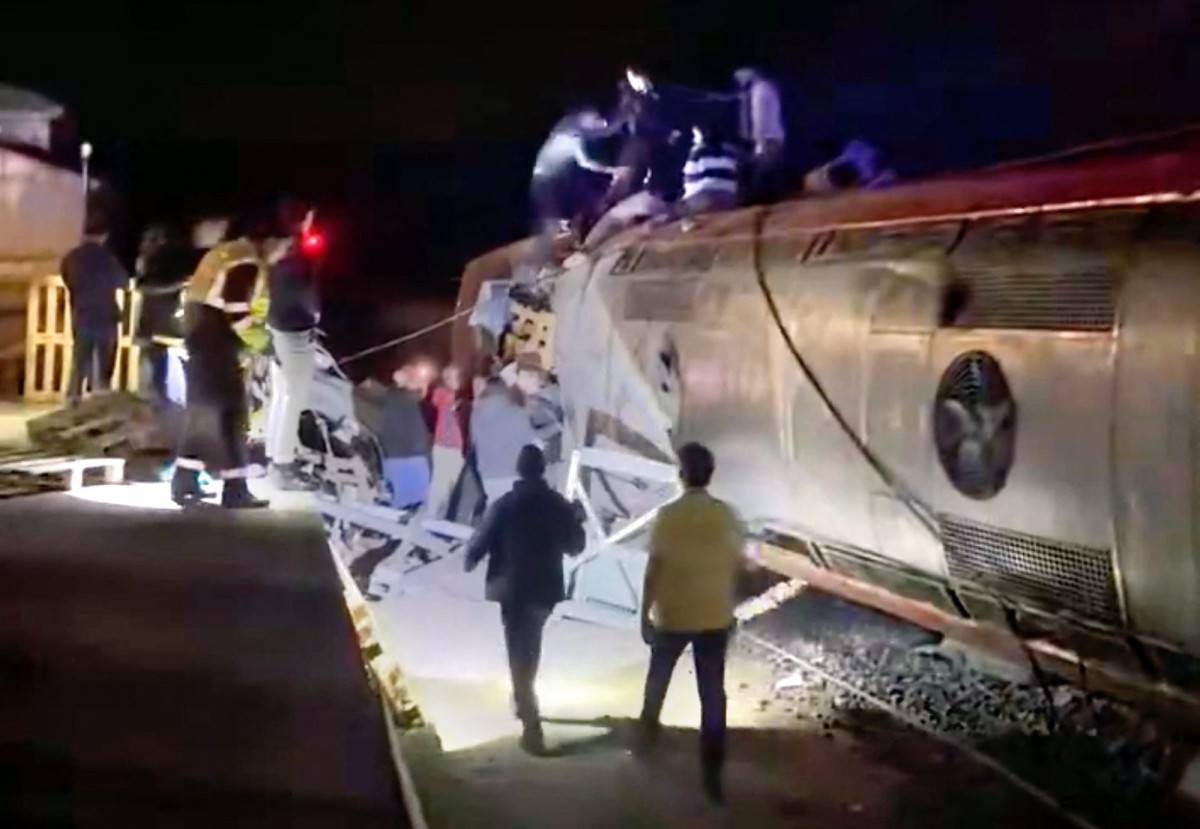
Spanish Prime Minister Pedro Sánchez pledged on Monday to ensure “absolute transparency” regarding the causes of a train crash that killed at least 39 people on Sunday in southern Spain, warning that the death toll could still rise.
The fatal accident occurred in the Andalusia region, where the number of confirmed deaths reached 39 by Monday morning, according to a spokesperson for the Ministry of the Interior.
Authorities were preparing to deploy heavy machinery to lift several derailed train cars. “We are waiting for cranes to be installed this morning to lift cars one, two and three of the Alvia train, which suffered the most damage,” said Andalusian regional president Juanma Moreno Bonilla on regional television. “It is likely that once they are lifted, we may find more victims,” he added.
The disaster also left more than 120 people injured. As of Monday afternoon, 43 victims remained hospitalized, including 12 in intensive care, according to emergency services.
International
Over 160 christian worshippers kidnapped in Kaduna Church attacks

More than 160 Christian worshippers were abducted on Sunday during coordinated attacks carried out by armed gangs on two churches in a remote village in Kaduna State, northern Nigeria, according to a cleric and a United Nations report accessed by AFP on Monday.
Nigeria, Africa’s most populous nation, has witnessed a renewed surge in mass kidnappings since November, prompting the United States government to carry out military strikes on Christmas Day in the northwestern state of Sokoto.
U.S. President Donald Trump accused Nigerian armed groups of targeting Christians, describing the violence as a form of “genocide” against the religious community.
According to Reverend Joseph Hayab, president of the Christian Association of Nigeria in the north, the attackers arrived in large numbers, blocked access to the churches, and forced worshippers to flee into nearby forests.
“The attackers came in large numbers, sealed off the entrances to the churches, and drove the faithful into the bush,” Hayab told AFP.
-

 International3 days ago
International3 days agoU.S. deportation flight returns venezuelans to Caracas after Maduro’s ouster
-

 Central America2 days ago
Central America2 days agoGuatemala prison uprisings leave 46 guards held by gangs
-

 International20 hours ago
International20 hours agoDeath toll from southern Spain train crash rises to 40
-
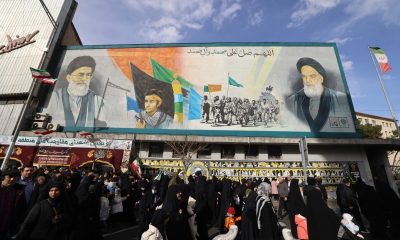
 International4 days ago
International4 days agoCanada accuses Iran of killing its citizen during anti-government unrest
-

 International4 days ago
International4 days agoSheinbaum highlights anti-drug gains after U.S. says challenges remain
-

 International20 hours ago
International20 hours agoOver 160 christian worshippers kidnapped in Kaduna Church attacks
-

 Central America20 hours ago
Central America20 hours agoGuatemala raises police death toll to nine after gang violence escalates
-

 International2 days ago
International2 days agoChile declares state of catastrophe as wildfires rage in Ñuble and Biobío
-

 International3 days ago
International3 days agoFormer South Korean President Yoon sentenced to five years in prison
-

 International20 hours ago
International20 hours agoSpain’s Prime Minister pledges transparency after train crash kills at least 39













